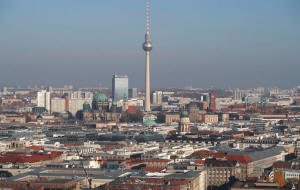|
The
Ifo institute said its business climate index stood at 87.3
following a revised reading of 88.6 in June. The drop was
slightly bigger than forecast, with analysts polled by Reuters
having expected a July reading of 88.0.
"The German economy has not really got back on its feet since
the coronavirus crisis," said VP Bank chief economist Thomas
Gitzel. "The problem is that cyclical uphills are not
accompanied by strong GDP growth rates, but rather by fragile
growth."
Europe's largest economy slipped into a technical recession in
early 2023, defined by two consecutive quarters of contraction.
Preliminary GDP data for the second quarter are expected on
Friday.
Gitzel predicted only slight growth in second-quarter GDP of
0.1% followed by a slide in the third as the global economy
weakens and energy concerns persist.
Carsten Brzeski, global head of macro at ING, said the German
economy was feeling the effects of a weaker-than-hoped-for
Chinese reopening, a looming U.S. recession and ongoing monetary
policy tightening, ahead of another expected rate hike from the
European Central Bank on Thursday.
"The growing feeling that Germany is in for a longer period of
subdued growth also seems to have reached German business," he
said.
A slew of other indicators have painted a gloomy outlook for
Germany, where sluggish output has acted as a drag on the euro
zone.
In July, S&P Global's composite PMI index, which comprises
services and manufacturing, dipped below the 50-mark, indicating
a decline in activity for the first time since January and
raising the likelihood of a longer recession.
A surprise jump in industrial orders in May calmed nerves only
briefly, as analysts pointed to serious pressure on the sector
as global demand slows.
(Reporting by Rachel More and Miranda Murray; Editing by
Friederike Heine and Christina Fincher)
[© 2023 Thomson Reuters. All rights
reserved.]
This material may not be published,
broadcast, rewritten or redistributed.
Thompson Reuters is solely responsible for this content.

|
|




